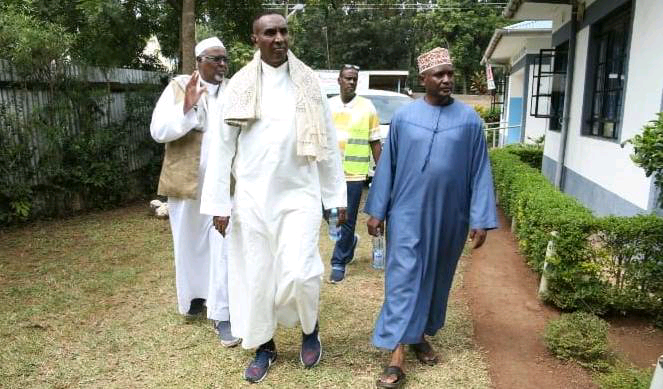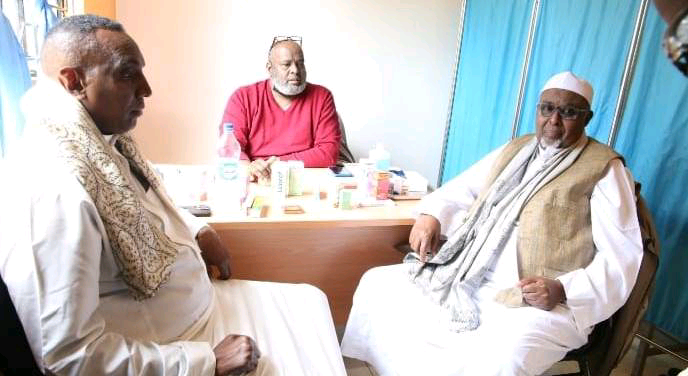The integration of secular education into Madrassa religious studies has been commended.
Mr. Mohamed Shidiye, the immediate Kenya’s High Commissioner to Botswana said the integration is critical in advancing literacy among Muslims.
Amb. Shidiye said a holistic approach must be implemented to enhance the development of young people across the country.
The former lawmaker was the guest of honour at the 9th Annual Quran Competition held at Kimaeti Mosque in Bungoma County on Sunday.

Mr. Shidiye said blending Islamic religious education with secular subjects in madrassas, helping preserve, disseminate, and promote elements of Islamic heritage.
Mr. Shidiye told the congregation the profound benefits of this integrated approach.
He said combining secular education with religious studies has been linked to enhancements of the overall educational experience of students and benefits the broader community.
“Madrassas have traditionally been centers of Islamic learning, focusing on religious texts, rituals, and moral teachings. However, the contemporary world demands a broader skill set for students to thrive, making the integration of secular education a vital component of a well-rounded curriculum,” Mr. Shidiye noted.
He said combining Islamic education with secular subjects such as mathematics, science, and social studies equips students with a comprehensive knowledge base.
“This enables them to effectively navigate both their spiritual and secular worlds,” he said.
He acknowledged the vital role of Islamic education in nurturing spiritual and ethical values.

Mr. Shidiye noted that secular education enhances intellectual and practical skills. He said this combination ensures students are well-versed in their religious duties while remaining competent in various academic disciplines.
This prepares them for diverse challenges in the modern world.
“Exposure to secular subjects encourages critical thinking and problem-solving skills. Students learn to approach issues from multiple perspectives, analyze data, and develop logical arguments. This intellectual agility complements the ethical and moral guidance provided by Islamic education, fostering a balanced and thoughtful approach to life’s complexities,” he noted.
Proficiency in subjects like science and mathematics, he argued, is increasingly important in various professional fields.
“By integrating these subjects, madrassas prepare students for higher education and career paths that require both religious understanding and academic prowess,” he added.
He said understanding secular subjects also enables students to engage in broader societal conversations and contribute meaningfully to their communities.
He stated that by equipping students with the knowledge and skills to interact effectively with diverse communities.
“Madrassa help bridge the gaps between different cultural and religious groups,” he said.
Mr. Shidiye emphasized the importance of balanced education, highlighting its role in fostering lifelong learning. In a rapidly changing world, he said, ongoing education is crucial for adapting and thriving.
He urged madrassas to adopt a curriculum that blends religious and secular education.
Mr. Shidiye also called for collaboration between religious scholars, educators, and policymakers to create a syllabus that respects Islamic values while including essential secular subjects.
“Training for teachers is also crucial to equip them with the skills to deliver a balanced education effectively,” he added.
